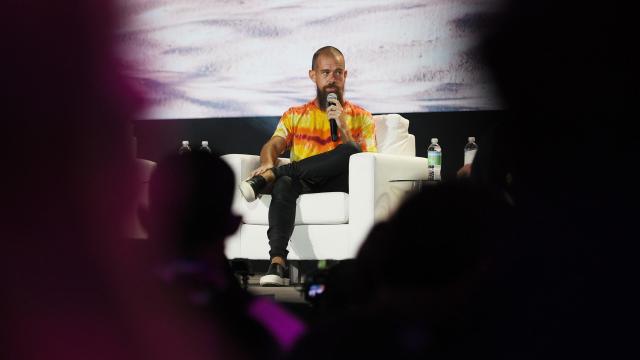Twitter co-founder and ex-CEO Jack Dorsey has not had it easy the past few weeks. After being hounded on the internet by mobs of Elon Musk fans wanting his blood for what’s been presented in the so-called “Twitter Files,” Dorsey finally came out late Tuesday not to apologise for banning former President Donald Trump, but to apologise for ever even creating moderation tools in the first place.
In a blog post, Dorsey wrote “The biggest mistake I made was continuing to invest in building tools for us to manage the public conversation, versus building tools for the people using Twitter to easily manage it for themselves.”
He also laid out three points that exemplify his social media philosophy: that social media should be kept out of any corporate or government control, that only an author should have the option to remove content they produce on a platform, and that moderation is best implemented by “algorithmic choice,” which is essentially ranking content based on user preferences. It’s an idea that’s been championed by the Dorsey-fronted Bluesky social app.
“The Twitter when I led it and the Twitter of today do not meet any of these principles. This is my fault alone,” Dorsey wrote. He also referred to an activist who “entered our stock in 2020” as the reason he gave up pushing those ideals. As noted by Business Insider, Dorsey could be referring to the hedge fund Elliott Management who bought $US1 million in stock and tried to oust Dorsey as CEO. Dorsey would eventually leave the position in 2021 and vacated his board position in 2022.
The Twitter Files, meant to reveal the blockbuster whistleblower reports and leaked documents that came out of Facebook in 2021, included communications happening in Twitter’s internal channels around the time the company was deciding if it should ban then-President Donald Trump. The first cache of files, published on Twitter exclusively in what seemed like a deal between journalist Matt Taibbi and Twitter’s new owner, showed how the decision was made by top Twitter brass, something that Dorsey later went on to defend in front of Congress.
Dorsey wrote that Twitter’s moderation tools gave it “too much power, and opened us to significant outside pressure (such as advertising budgets).” As far as banning Trump’s account, he seemed to have some regrets over banning it, calling it a good thing for the company “but the wrong thing for the internet and society.”
Dorsey had been friends with Musk for a long time, and explicitly supported the billionaire buying the company. The Twitter founder asked Musk to simply release all the files in question for the world to make up its own mind, but Musk has so far refused, apparently preferring that spectacle brings more eyes to his beleaguered social media platform. The ex-Twitter CEO defended his former execs that were called out in the Twitter Files, saying “everyone acted according to the best information we had at the time.” Though now, Dorsey said “any content produced by someone for the internet should be permanent until the original author chooses to delete it. It should be always available and addressable.”
Social media moderation is, by its nature, going to be messy thanks to the combination of systems and people making decisions on what posts stay and which posts go. The thing is, with the way modern platforms are structured — especially with its dependence on advertising dollars — moderation is a kind of inevitability. As Mike Masnick wrote on his Techdirt blog last month, many other supposed “free speech absolutists” go into the sphere thinking they’ll create the first “open” platform only to be repeatedly remanded by the absolute need to block objectively harmful content, whether that’s calls for violence or child sex abuse material (often known as CSAM). Twitter has faced CSAM issues for years, and experts have said it’s a problem that continues in the post-Musk Twitter.
There’s been ample evidence that ads keep getting placed next to white nationalist accounts on Twitter, those same once-banned accounts that Musk is now allowing back onto the platform. It’s an open question just how dire the advertising situation is for Twitter, but its clear that the amount of money Musk might make off of paid-for blue checkmarks is nowhere near what the company once made in lost advertising, especially as he promised users that you’ll see less ads if you subscribe to his verification scheme. ($US8 monthly if you sign up on the web, $US11 ($15) via iOS)
It’s unclear if Musk shares all of Dorsey’s scruples or ideals about creating a kind of decentralized, utopian social media platform. While the new Twitter owner is still trying to get people on board with his blue checkmarks, he’s been cutting the teams that were once responsible for moderating content and basically replacing them with a policy of “don’t fuck with Musk.” He’s banned the account that tracked his private jet even though it’s completely unclear what policies the account violated. Back in November, Twitter banned comedian Kathy Griffin after she trolled Musk with a copycat account, though her account has since been reinstated.
